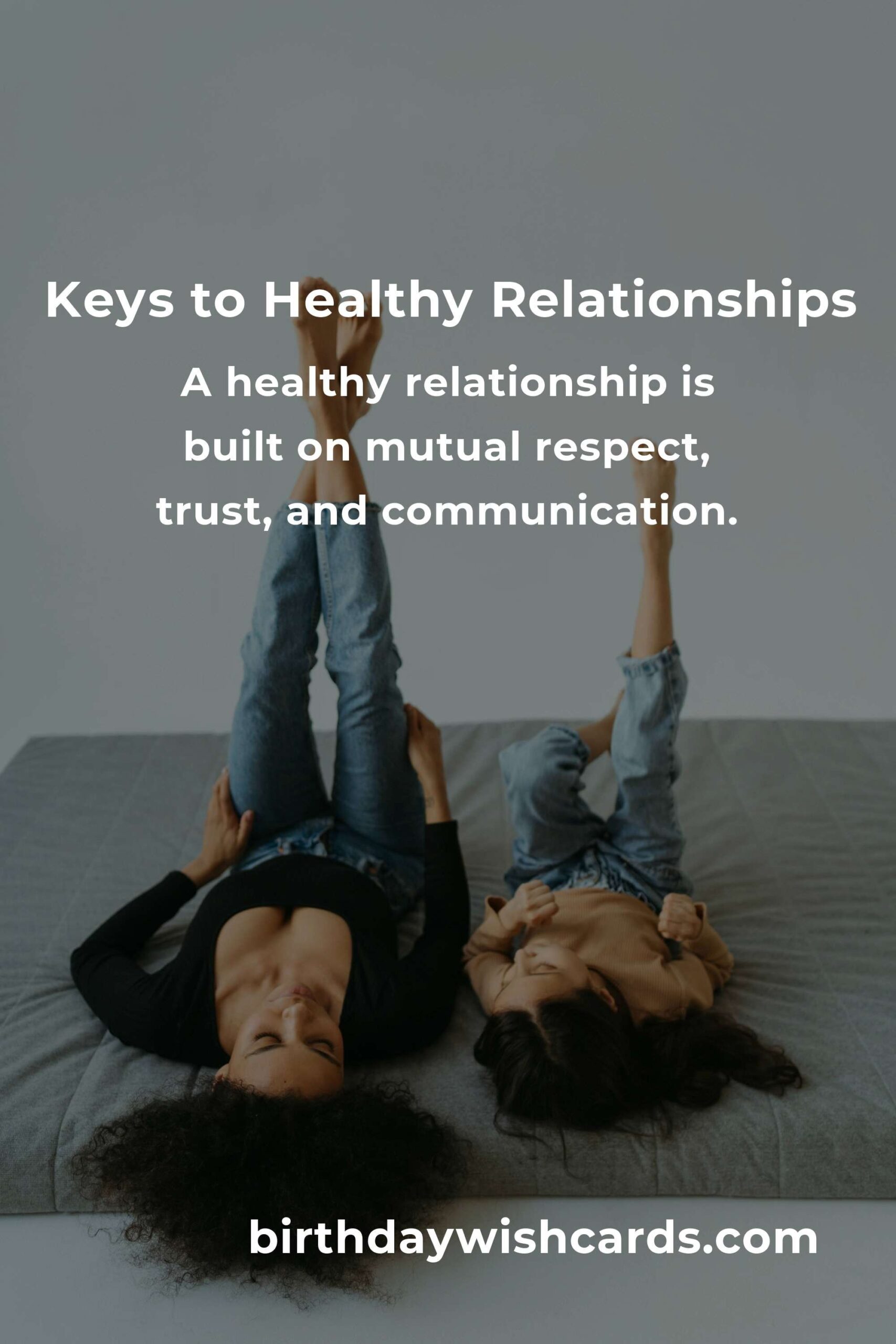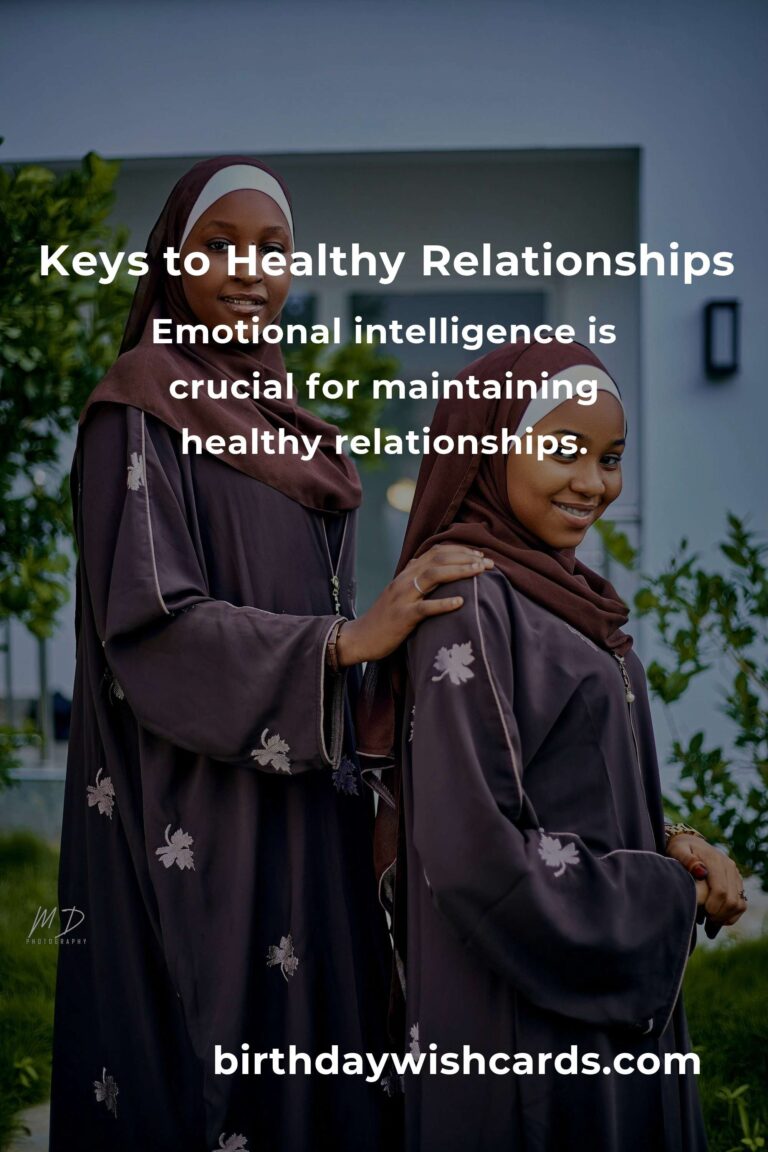
Relationships are an integral part of human life. They provide support, joy, and a sense of belonging. However, maintaining healthy relationships requires effort, understanding, and the right skills. This guide will delve into the essential components and strategies for fostering strong, healthy relationships.
Understanding the Foundations of Healthy Relationships
A healthy relationship is built on mutual respect, trust, and communication. Respect involves acknowledging and valuing each other’s differences and boundaries. Trust allows partners to feel safe and secure, knowing that they can rely on one another. Effective communication is the bridge that connects all aspects of a relationship, enabling both parties to express their needs, desires, and concerns openly.
Communication Skills: The Cornerstone of Healthy Relationships
Communication is the lifeline of any relationship. It involves both verbal and non-verbal cues, including listening actively, expressing emotions honestly, and resolving conflicts constructively. Active listening involves giving full attention to your partner, reflecting on what they say, and responding thoughtfully. Expressing emotions involves sharing your feelings without fear of judgment or ridicule. Conflict resolution requires addressing disagreements calmly and finding mutually acceptable solutions.
Building Trust and Mutual Respect
Trust and respect are earned over time through consistent actions and behaviors. Being reliable, honest, and supportive helps build trust. Respect is shown by valuing your partner’s opinions, feelings, and boundaries. It’s essential to keep promises, be transparent, and acknowledge your partner’s needs and desires.
Emotional Intelligence: Understanding and Managing Emotions
Emotional intelligence is crucial for maintaining healthy relationships. It involves recognizing, understanding, and managing your own emotions and those of your partner. Emotional intelligence allows you to empathize, communicate effectively, and navigate the complexities of relationships. Developing self-awareness, self-regulation, and empathy are key components of emotional intelligence.
Setting Boundaries: Protecting Personal Space and Well-being
Boundaries are essential for maintaining individuality and well-being within a relationship. They involve setting limits on what is acceptable in terms of behavior, communication, and personal space. Healthy boundaries ensure that both partners feel respected and valued while maintaining their identities. It’s important to communicate boundaries clearly and respect your partner’s limits.
Conflict Resolution: Navigating Disagreements Constructively
Conflicts are inevitable in any relationship, but how they are handled can strengthen or weaken the bond. Constructive conflict resolution involves addressing issues calmly, listening to each other’s perspectives, and finding common ground. It requires patience, empathy, and a willingness to compromise. Avoiding blame, focusing on the issue rather than the person, and seeking solutions together can help resolve conflicts effectively.
Nurturing Intimacy and Connection
Intimacy and connection are vital for a fulfilling relationship. They involve sharing experiences, thoughts, and emotions on a deeper level. Building intimacy requires time, effort, and vulnerability. Engaging in shared activities, communicating openly, and expressing appreciation and affection can help nurture intimacy and connection.
Seeking Professional Help: When to Consider Relationship Counseling
Sometimes, relationships face challenges that require external support. Relationship counseling can provide a safe space for partners to explore their issues, improve communication, and rebuild trust. Professional guidance can help identify underlying problems, develop effective strategies, and strengthen the relationship. Seeking help is a proactive step towards a healthier relationship.
Conclusion: The Journey to Mastering Healthy Relationships
Mastering healthy relationships is a continuous journey that requires dedication, effort, and an open heart. By focusing on communication, trust, respect, emotional intelligence, boundaries, and conflict resolution, you can build a strong, lasting bond with your partner. Remember, healthy relationships are a partnership where both individuals contribute to each other’s growth and happiness.
Relationships are an integral part of human life, providing support, joy, and a sense of belonging. A healthy relationship is built on mutual respect, trust, and communication. Communication is the lifeline of any relationship, involving both verbal and non-verbal cues. Trust and respect are earned over time through consistent actions and behaviors. Emotional intelligence is crucial for maintaining healthy relationships. Boundaries are essential for maintaining individuality and well-being within a relationship. Constructive conflict resolution involves addressing issues calmly and listening to each other’s perspectives. Intimacy and connection are vital for a fulfilling relationship. Relationship counseling can provide a safe space for partners to explore their issues and improve communication.
#HealthyRelationships #Communication #EmotionalIntelligence #Trust #Boundaries

